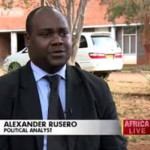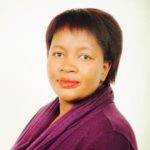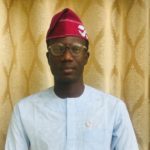Africa Internet Governance Forum and IFLA side event: Navigating the truth amidst turbulences in the virtual space
IFLA’s Sub-Saharan Africa Regional Division Committee (SSA RDC), in partnership with Malawi Library Association, is participating in the Africa Internet Governance Forum, advocating for the role of libraries in ensuring a sustainable and inclusive digital society. The Forum takes place 19-21 July in Lilongwe, Malawi.
With a focus on four areas – cybersecurity, digital skills, affordable access, and digital infrastructure – there are plenty of opportunities to highlight the importance of libraries’ actions and values.
In particular, the SSA RDC will organise a side-event, entitled Navigating the truth amidst turbulences in the virtual space.
The session aims to share and impart skills on the critical evaluation of digital information, promote ethical engagement online, and build awareness of the public about the key issues in the digital space. Through this it looks to build a virtuous circle of cooperation between motivated participants, aware of their ethical obligations in the online environment, a civil society confident in engaging meaningfully as contributors and consumers of online content, and libraries as a pre-existing infrastructure of information experts.
The speakers (listed below) will discuss good practices and seek feedback from participants on how information experts can help address the impacts of the proliferation of fake news/information online most effectively, lay the foundations for the development of a digital literacy advocacy guide or tool kit for libraries, library associations and potential partners in the region, as well as working to mobilise information workers to be part of the AfIGF.
Speakers:

Alexander Rusero (PhD) is a Research Fellow with the Institute for Pan African Thought &Conversation (IPATC), University of Johannesburg, South Africa. He is also a Senior Lecturer of International Relations, Politics and Journalism with 15 years university teaching experience, having taught at Harare Polytechnic’s School of Journalism and Media Studies, Africa University’s College of Social Sciences Theology, Humanities and Education as well as Great Zimbabwe University’s Department of Politics and Public Management. Rusero is an author of 10 academic textbooks and more than 10 peer-reviewed book chapters and journal papers related to media, democracy and human rights, international relations and foreign policy, Media, Libraries and Archives as well as pan-Africanism and Decoloniality.
 Bongiwe Magocha is currently the head of Library and information services at Botswana Accountancy college. In 2010-2015 she was a member of Botswana Library Consortium network and a deputy editor of the Botswana Library association. From 2010-2020 She was a standing committee member of IFLA (International Federation of Library Associations and Institutes) Africa section, representing Botswana. From 2018-2020 she was the information coordinator and web editor of IFLA Africa section. Bongiwe is currently a serving member of IFLA Sub-Saharan Africa Regional Division Committee.
Bongiwe Magocha is currently the head of Library and information services at Botswana Accountancy college. In 2010-2015 she was a member of Botswana Library Consortium network and a deputy editor of the Botswana Library association. From 2010-2020 She was a standing committee member of IFLA (International Federation of Library Associations and Institutes) Africa section, representing Botswana. From 2018-2020 she was the information coordinator and web editor of IFLA Africa section. Bongiwe is currently a serving member of IFLA Sub-Saharan Africa Regional Division Committee.
 Felix Patrick Majawa (Associate Professor) is University Librarian for Mzuzu University. Worked as Technical Services Librarian from 2006 to 2015 before he became University Librarian. Obtained Masters Degree in Information and Library Management from Loughborough University-UK, Bachelors Degree in Human Resource Management from the University of Malawi, Chancellor College and Diploma in Library and Information Studies from the University of Botswana. Areas of Research interest include: Digital Library Management, Data Curation, Open Access and Social Media. Presented papers at different Library and Information Science Conferences in Africa. He is also a reviewer for the Malawi National Council for Higher Education and has been involved in assessments for accreditation of both public and private higher education institutions in Malawi. He is also the Vice President of the Malawi Library Association and Vice Secretary for the Malawi Library and Information Consortium.
Felix Patrick Majawa (Associate Professor) is University Librarian for Mzuzu University. Worked as Technical Services Librarian from 2006 to 2015 before he became University Librarian. Obtained Masters Degree in Information and Library Management from Loughborough University-UK, Bachelors Degree in Human Resource Management from the University of Malawi, Chancellor College and Diploma in Library and Information Studies from the University of Botswana. Areas of Research interest include: Digital Library Management, Data Curation, Open Access and Social Media. Presented papers at different Library and Information Science Conferences in Africa. He is also a reviewer for the Malawi National Council for Higher Education and has been involved in assessments for accreditation of both public and private higher education institutions in Malawi. He is also the Vice President of the Malawi Library Association and Vice Secretary for the Malawi Library and Information Consortium.
 Damilare Oyedele grew up in a peri-urban community in Ibadan, South West of Nigeria. While growing up, he did not have access to a library to study, learn and use information independently. This presented him with numerous challenges, including poor reading culture and an inability to pass the national transition examination twice consecutively because of the lack of access to reading materials. To address this, in 2013, at the age of 19, Damilare started to mobilize his friends as volunteers to work towards creating awareness about the importance of libraries. He commenced by publishing articles in Nigerian daily newspapers about the importance of libraries in our society. This initiative later grew into a not-for-profit organization called Library Aid Africa which he now heads as the Co-Founder & Chief Executive. For the past 4 years, he and his team have focused on advocacy and support for the resuscitation of libraries in schools and communities – leveraging digital technology and citizen engagement approaches to make libraries viable.
Damilare Oyedele grew up in a peri-urban community in Ibadan, South West of Nigeria. While growing up, he did not have access to a library to study, learn and use information independently. This presented him with numerous challenges, including poor reading culture and an inability to pass the national transition examination twice consecutively because of the lack of access to reading materials. To address this, in 2013, at the age of 19, Damilare started to mobilize his friends as volunteers to work towards creating awareness about the importance of libraries. He commenced by publishing articles in Nigerian daily newspapers about the importance of libraries in our society. This initiative later grew into a not-for-profit organization called Library Aid Africa which he now heads as the Co-Founder & Chief Executive. For the past 4 years, he and his team have focused on advocacy and support for the resuscitation of libraries in schools and communities – leveraging digital technology and citizen engagement approaches to make libraries viable.
More so, he serves on Sub-Saharan Africa Regional Committee of The International Federation of Library Associations and Institutions (IFLA), where he leads on Global Advocacy Priorities. Currently, he is a MasterCard Foundation Scholar at The African Leadership University, studying Global Challenges, with a research focus on library policy and legislation in sub-Saharan Africa.